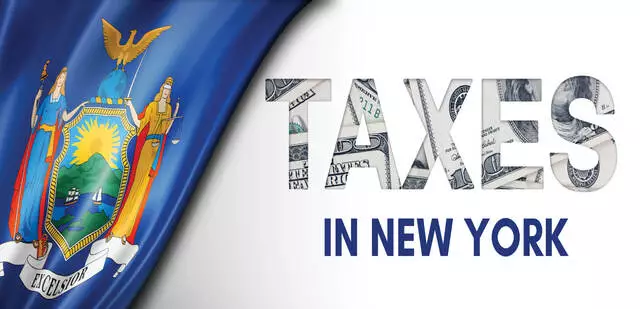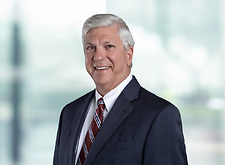
There were three determinations to report on this week, and a majority of them are not Timies! The two substantive cases address how to properly source income from a trade, business, or profession carried on, or previously carried on, in New York under Tax Law § 631. And in both cases, the Judges found that such sourcing needed to follow the path set forth in applicable regulations as required by the statute.
I didn’t watch any of the Olympics other than the part of the closing ceremonies when they cut from Paris to LA. But I heard that break dancing was an Olympic event in Paris for the first time – but it’s already been axed for the next Summer Games. Wow. Since the Summer Olympics are going to LA in 2028, maybe they can have an Olympic event like the contest at the end of “Eight Mile” when B-Rabbit resorts to a self-deprecating rap to dispatch Papa Doc. I liked that, so I’d probably watch something like that again. And like in Eight Mile, shouldn’t the audience (maybe the TV audience to avoid host-country bias) participate in the judging of certain Olympic events?
The IOC knows where to find me if it needs more suggestions.
Determinations:
Matter of Adams (ALJ Law, August 8, 2024); Div’s Rep. Peter Ostwald, Esq.; Pet’s Reps. pro se (at the hearing); Michael Dunworth, Esq. (on the brief); Article 22/Allocation of restricted stock income of a nonresident (Chris Doyle)
During the years at issue, Petitioner earned four streams of income from his employer: wages, bonuses, restricted stock units (“RSUs”), and Dividends on the RSUs. Petitioner, a nonresident, sourced his wage and bonuses income to New York based on a workday ratio (NY workdays/total workdays) for the year the wage and bonuses were received. Although the allocation of bonus income was challenged on audit, the Division ultimately conceded to a “year-of-receipt” workday allocation because the bonus was discretionary and not necessarily based on the results for the year prior to payment.
Although unclear from the determination, it appears that Petitioner did not allocate any of his RSU or dividend income to New York. Judge Law found that the RSU income should have been allocated to New York based on Petitioner’s workday ratio for the grant-to-vest period for the RSUs at issue. He noted that Tax Law § 631(g) required allocation of RSU (and other equity-based compensation) in accordance with regulations, and that the regulations (20 NYCRR 132.24) required the allocation be done in accordance with a grant-to-vest workday ratio.
However, the Judge found that none of the RSU dividend income was allocable to New York since Petitioner was entitled to dividends only on RSUs that had previously vested. As such, the dividends were in the nature of investment income that would not be sourced to New York.
Matter of E Cars USA Inc. (ALJ Russo, August 8, 2024); Div’s Rep. Bruce Lennard, Esq.; Pet’s Rep. Lawrence Cole, CPA; Articles 28 and 29/Timy when a fraud penalty is asserted (Chris Doyle).
Petitioner challenged a Notice asserting a fraud penalty by filing a request for conciliation conference on September 11, 2023. The Notice carried a date of March 15, 2023, so the Conciliation Conferee issued an Order dismissing the Request as untimely. Petitioner challenged that Order by filing a timely Petition.
Judge Russo granted the Division’s motion for summary determination and sustained the Order dismissing the case. The Judge found that the Division established its standard procedures and that they were followed when the Division mailed the Notice to Petitioner’s last known address on March 15, 2023. The Judge also determined that a special 30-day deadline for filing the BCMS Request or DTA petition applied because the Notice asserted a fraud penalty. Accordingly, Petitioner’s request for Conciliation conference was many months late instead of only a few months late.
This case caused me to take a closer look at the statute (Tax Law § 2008.2(a)(iii)) imposing the special 30-day deadline. While the Judge’s determination appears correct on the merits, I wonder about the proper process in these cases. The statute requires a hearing be scheduled in ten days, and there is no provision for interlocutory motions like the motion for summary determination at issue in this case. While such motions are not prohibited, mandating a hearing be scheduled in ten days seems to preclude that possibility. It also precludes the possibility of an answer. Hmm.
Matter of Struckle (ALJ Chu-Fong, August 8, 2024); Div’s Rep. Michele Milavec, Esq.; Pet’s Rep. Kristofer DePaolo, CPA; Article 22/Convenience of the employer rule (Chris Doyle).
Petitioner was a nonresident in 2020. Wait a minute … Something notable happened in 2020, right? I vaguely recall a global St. Patrick’s Day party so epic that the world shut down for six months to recover from the hangover. I may not have the details exactly right. But I’m pretty sure it was something like that.
Anyway, like many New York businesses, Petitioner’s employer closed its office from Mid-March 2020 until Mid-September 2020, and instructed petitioner to work from his home. As a result, in 2020 Petitioner worked in New York only 66 of the 262 total days he worked. The balance of Petitioner’s workdays was spent at Petitioner’s Pennsylvania home. As a New York nonresident, Petitioner was permitted to allocate his compensation income based on a workdays ratio that divided his New York workdays by his total workdays. It all makes sense, right?
Um, maybe not. Judge Chu-Fong, citing Tax Law § 631, noted that a nonresident’s compensation income is required to be sourced to New York in accordance with the applicable regulations. The applicable regulation (at 20 NYCRR 132.18(a)) permits nonresidents to use a workday ratio to allocate income to New York. However, the regulation also requires that “any allowance claimed for days worked outside New York State must be based upon the performance of services which of necessity, as distinguished from convenience, obligate the employee to out-of-state duties in the service of his employer.” This is the mislabeled “convenience of the employer” rule. And the Judge applied the convenience rule here to prohibit Petitioner from allocating any of his compensation outside of New York since Petitioner’s use of an office or workspace in Pennsylvania was not the result of any employer necessity. The Judge reasoned that Petitioner could have worked anywhere since the COVID pandemic (ed.: not a St. Patrick’s Day party hangover) resulted in his employer closing the office but did not result in a mandate that Petitioner work from a non-New York location. Since he was not working out of his Pennsylvania home “out of his employer’s necessity,” the Judge found that Petitioner hadn’t proven that the Division misapplied the convenience of the employer rule.
I find the Division’s application of the Convenience rule to COVID-driven fact patterns unsatisfactory. Hopefully a higher authority (maybe the Appellate Division, Third Department?) will require a more logical approach to these cases.

